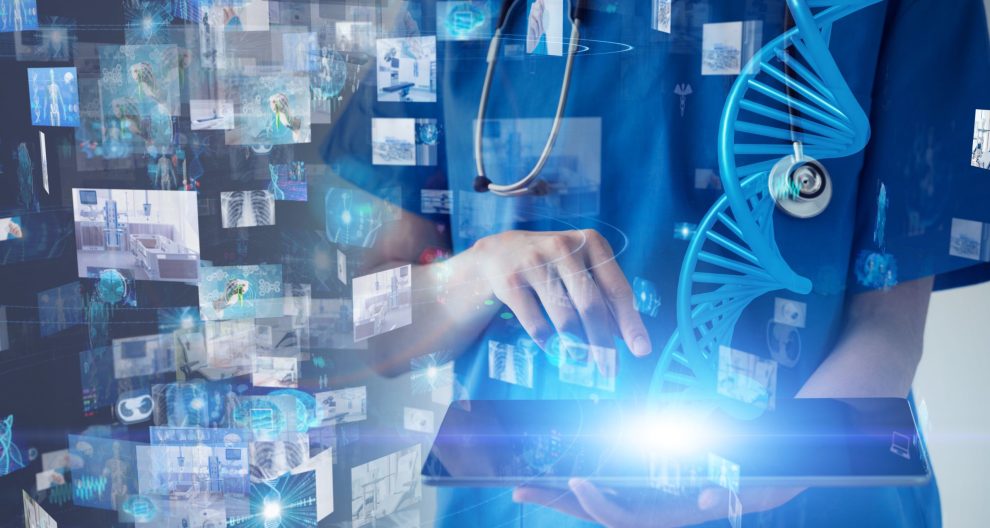Imagine a future where healthcare doesn’t just react to illnesses but actively predicts and prevents them. Where wearable devices and smart assistants monitor your health, sending personalized alerts before symptoms even appear. This isn’t science fiction; it’s the exciting reality driven by Artificial Intelligence (AI) in preventative healthcare.
Traditional Preventative Care vs AI-Powered Predictive Care
Traditionally, preventative care involved routine checkups and basic screenings. While important, these approaches rely on the ability of doctors to spot potential issues at a single point in time.
AI completely transforms this approach by continuously analyzing vast amounts of data from diverse sources with unrivaled speed and accuracy. Rather than playing catch up with diseases, cutting-edge AI systems can identify risks early and even predict emerging conditions years before physical symptoms materialize.
Benefits of AI in Preventative Healthcare:
- Early Disease Detection: AI scans medical images, genetic data, wearable device outputs and electronic health records to detect subtle early signs of disease.
- Personalized Risk Assessment: AI systems analyze genetics, family history, lifestyle factors, and more to calculate personalized disease risk profiles for each patient.
- Real-time Health Monitoring: Wearables and sensors track vitals around the clock, with AI discerning emerging patterns and flagging potential issues.
Real World Examples of AI-Powered Preventative Healthcare
Cancer Detection
One major focus is improving early cancer detection where small improvements can translate into significantly better treatment outcomes. For example:
- Google’s LYNA system detects breast cancer metastases on pathology slides with 99% accuracy, surpassing human specialists.
- AI analysis of mammograms produces 30 times fewer false positives and detects subtle signs human radiologists can miss.
- AI assessment of lung CT scans detects cancer early, avoiding biopsies in benign cases.
Genomic Risk Prediction
Reading an individual’s unique DNA sequence allows prediction of genetic predispositions to diseases often decades before their onset. AI algorithms enhance this further by identifying complex risk patterns within genetic data missed by humans alone.
Chronic Disease Prediction
By surveying population trends within vast medical datasets, AI systems can predict individuals most at risk from conditions like diabetes and heart disease. This enables proactive interventions through medication or lifestyle changes to delay or even prevent onset.
Mental Health Monitoring
Wearables tracking activity, sleep and physiological signals combined with AI algorithms can identify changes indicating emerging anxiety, depression or other mental health issues. This allows early interventions to support wellbeing and prevent escalation into crises.

Practical Considerations for Responsible AI in Healthcare
Despite the vast promise, there are ethical and practical challenges requiring thoughtful responses:
Privacy and Security
Vast pools of intimate health data required for advanced AI necessitate robust privacy and security safeguards. Ethical policies and systems preventing abuse are crucial for maintaining public trust.
Avoiding Bias
Like any technology, AI runs the risk of perpetuating societal biases and unequal access. Prioritizing inclusiveness and fairness across all healthcare AI development is key.
Accessibility and Affordability
Maximizing access to advanced AI healthcare tools regardless of geography, social status or personal wealth remains an challenge. Creative solutions bridging gaps for disadvantaged groups are needed.
The Future of AI in Preventative Healthcare
Despite obstacles, the remarkable potential of AI in preventative healthcare and early disease detection is undeniable. As innovation marches forward, the opportunities to proactively safeguard individual and public health multiply beyond imagination.
Key areas powering this transformation:
- Integration into Healthcare Infrastructure: Merging advanced AI systems into mainstream healthcare smoothly is critical for impact.
- Human-AI Collaboration: AI should act as an assistant enhancing human clinician abilities for better outcomes.
- Continuous Innovation: Ongoing research tackling limitations and ethical concerns will further advance the healthcare potential of AI.
















Add Comment